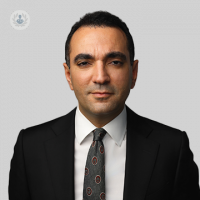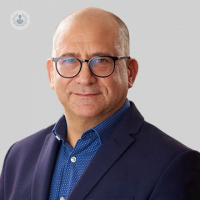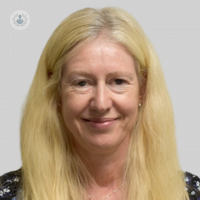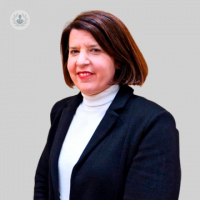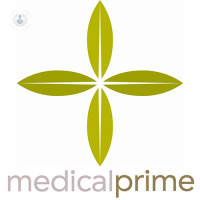Early menopause
Mr Osama Naji - Obstetrics & gynaecology
Created on: 03-29-2019
Updated on: 10-10-2023
Edited by: Kate Forristal
What is early menopause?
Most women begin menopause, which is when the periods stop, between the ages of 45 and 55. Early menopause occurs before age 45 and premature menopause refers to onset before age 40.

What are the causes of early menopause?
Early menopause occurs naturally if a woman’s ovaries stop making normal levels of certain hormones, including the hormone oestrogen. This is known as premature ovarian failure.
Other possible causes include genetics, as the age at which menopause begins is likely inherited. Some lifestyle factors such as smoking have an anti-oestrogen effect. Body mass index (BMI) can also be a factor of early menopause as oestrogen is stored in fat tissue.
Some chromosome defects, such as Turner syndrome means being born with an incomplete chromosome and therefore the ovaries in women with this condition do not function properly.
If a woman suffers from an autoimmune disease, such as thyroid disease or rheumatoid arthritis, the immune system attacks the body’s tissues. The inflammation from these diseases can affect the ovaries. Radiotherapy or chemotherapy can cause the ovaries to fail but it depends on the type of treatment that the woman is given to treat her cancer.
What are the symptoms of early menopause?
The primary symptom of early menopause is that periods are infrequent or stopping altogether. This time leading to the menopause is called the perimenopause, which is when irregular periods and some of the following symptoms occur:
- Hot flushes
- Night sweats
- Vaginal dryness
- Changes in memory
- Weight gain
- Vaginal pain during intercourse
How is early menopause diagnosed?
A GP is able to make a diagnosis by examining the patient’s symptoms, family history and through a blood test to check the hormone levels.
How is early menopause treated or managed?
The treatment for early menopause is either the combined contraceptive pill or hormone replacement therapy (HRT), which makes up for the missing hormones. This treatment is not suitable for women who have had breast cancer. It is important to discuss the benefits and risks of taking this type of treatment.
The doctor will also be able to discuss lifestyle changes that can help, such as quitting smoking, taking tai chi and yoga to help with mood changes, and avoiding alcohol and caffeine to help with hot flushes and night sweats.
Can early menopause be reversed?
Early menopause cannot be reversed but treatment such as HRT can delay or reduce the symptoms.
